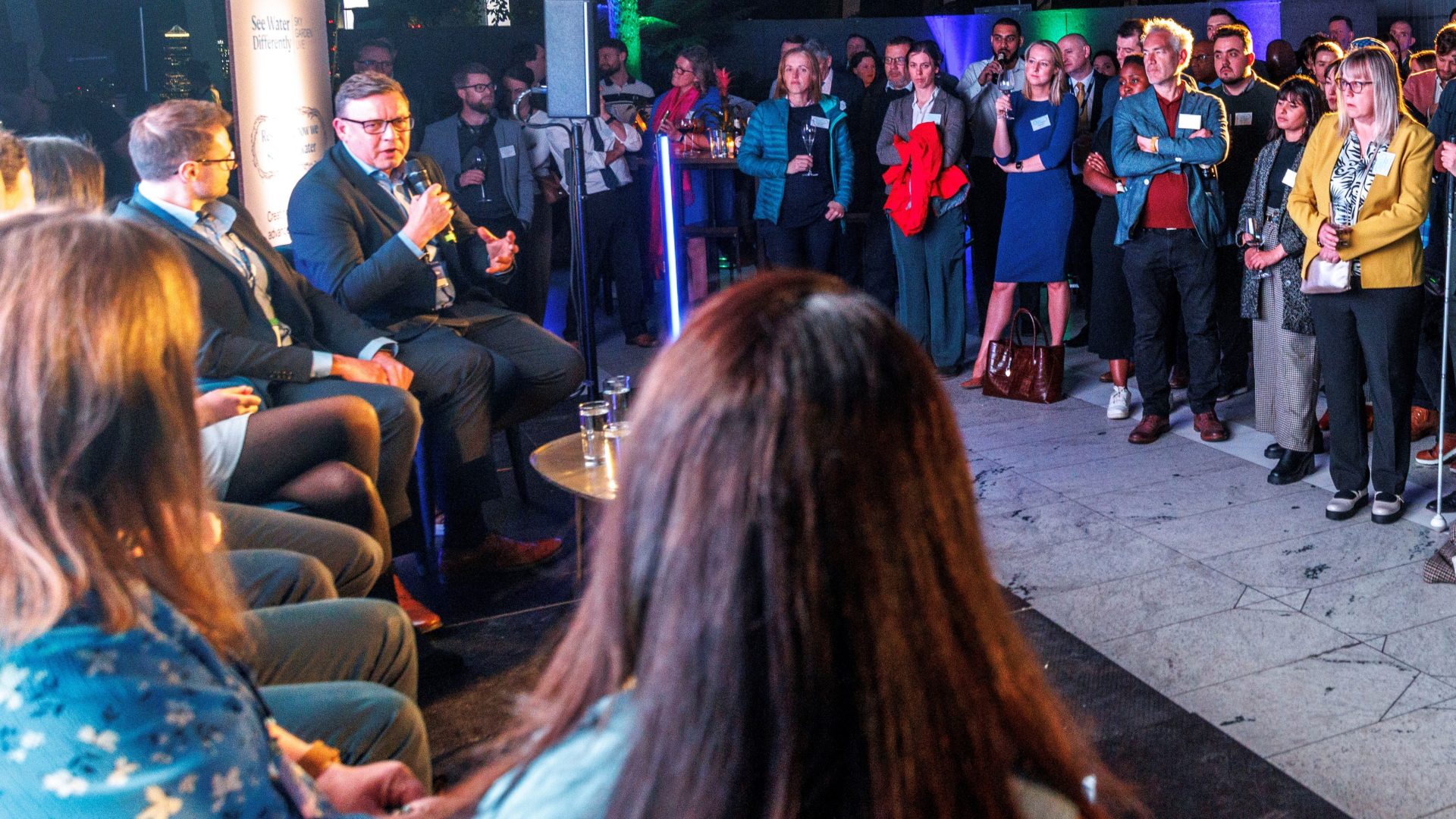As the climate crisis worsens and its impact on infrastructure increases, surface water management experts, Wavin, have launched their first whitepaper exploring the issue. Developed following the manufacturer’s See Water Differently event, Wavin’s whitepaper explores the role of Urban Climate Resilience (UCR) in futureproofing growing town and city centres and the wider built environment.
Expanding on discussions covered by industry leaders at the panel event, the whitepaper calls for enhanced collaboration and collective responsibility at both the regional and local authority level.
A key theme in the whitepaper is the critical role that both grey and green infrastructure can play in bolstering defences. The report recommends a ‘hybrid’ approach to effective water management which utilises both engineered ‘grey’ infrastructure with green elements.
When it comes to implementing sustainable drainage at scale, Wavin points towards a change to legislation and regulation alongside education, new partnerships and innovation as the key to achieving this. Combined with calls for collective responsibility, the manufacturer aims to provide a clear roadmap for both regional and local authorities, as well as private developers and water companies, to deliver urban climate resilience.
The whitepaper launch follows the See Water Differently event which brought together prominent voices in the climate debate. This included meteorologist and Good Morning Britain weather presenter – Laura Tobin – and representatives from Wavin, Thames Water, Jacobs, Stormwater Shepherds, Exeter University and University of Leeds.
With a large focus on how we can better protect today’s urban centres, both Wavin’s panel discussion and the following whitepaper outline the manufacturer’s recommendations for future proofing infrastructure. These include taking learnings from today’s flooding and climbing temperatures to inform future policy and decisions, as well as using understandings of previous infrastructure – like urban rain gardens, green roofs, and park drainage – to better inform future developments.
Martin Lambley, Global Product Manager for Urban Climate Resilience at Wavin, and panellist at See Water Differently said:
“April’s event at London’s Sky Garden was a great success, and it only highlighted the complexities of delivering on effective water management. Although, the challenges facing the wider built environment from climate change will continue to evolve, so too should our understandings of how we can best respond.
“It’s clear that there’s some way to go before there’s an industry consensus on how to address these challenges, but this event and whitepaper are prime examples of the value of collaboration and a shared understanding among parties who have a key stake in this.”
Dr James Webber, Lecturer in Water Systems Engineering, University of Exeter, another panellist at the See Water Differently event added:
“It was great to be part of Wavin’s recent event with such a diverse range of science, construction and policy professionals. It’s clear there is widespread support to utilise green infrastructure to assist surface water management, whilst providing additional benefits to our communities and environments. This growing consensus to implement green systems is exciting and apparent, but timing is crucial, and there remains much we need to do to connect best practice to business as usual.”
To read the entire whitepaper, visit: See water differently: incorporating SuDs to create future-proofed cities



